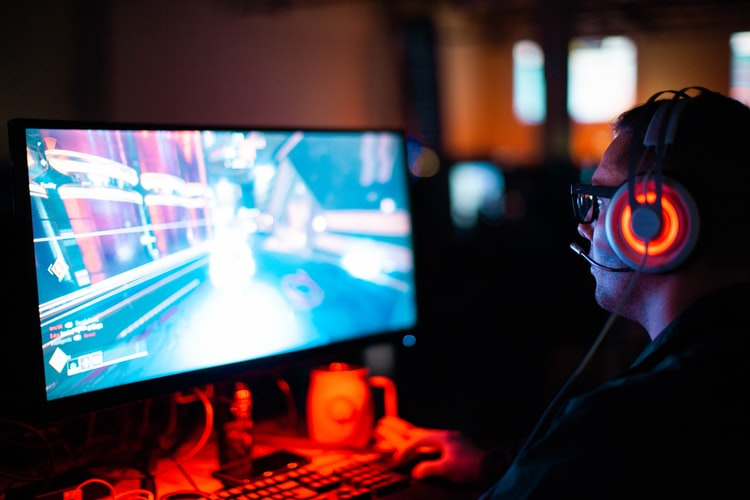
The video gaming industry is massive and is growing all the time. Technology is at the heart of the gaming sector, the latest cutting-edge systems and techniques are utilised to provide players with ever more immersive and engaging experiences.
As a result, it will come as no surprise to learn that games are becoming increasingly integrated with blockchain technology and associated digital assets. The games industry is expected to be a major partner of the crypto world, and investors are carefully monitoring the UFO Price to see how the market reacts. Experts predict that decentralised gaming is the future of the sector. Read on to find out more about decentralised gaming and how it could be set to revolutionise the video gaming world.
Blockchain Technology: What’s it All About?
Before we can look at decentralised gaming, first we need to understand what blockchain technology is, what it’s used for, and how it works.
Blockchain platforms are peer-to-peer networks where actions are recorded and stored. Blockchain platforms are most commonly associated with cryptocurrencies, and this is what they are largely used for, but the reality is that any kind of data can be logged on the blockchain.
Every action is represented as a block, which is then added to a chain of blocks after it has been verified. This verification isn’t carried out by a management system or governing body, but instead by other users on the platform. This is what’s known as decentralisation, it’s a new way of processing data that promises to revolutionise a wide range of industries.
So, now we know what the blockchain is and what we mean by decentralisation, how is this technology changing gaming and where could it be heading in the future.
Games Built on Blockchain Platforms
The very first blockchain platform, Bitcoin, was designed to serve simply as a digital ledger where transactions made using the Bitcoin cryptocurrency could be stored and recorded. However, as the technology continued to improve and develop, more advanced blockchain platforms were launched which could offer far more than just financial record keeping.
Modern blockchain platforms can be used to host and even build a range of different tools and applications, including software packages, websites, and, of course, video games. Video games built on these blockchain platforms can offer far more than console or PC-based games of old. Let’s find out more.
Digital Ownership
In traditional video games, players find, use, earn, and often purchase in-game assets such as items, weapons, vehicles, and clothes. However, these assets are based purely within the game itself and offer no real benefit to the player outside of that particular game environment.
With decentralised games, players will personally own the in-game assets they have. What this means is that they can be taken out of one game and used in another, or even sold or traded between players or on dedicated marketplaces.
This adds a whole new dimension to the gaming experience. By giving players ownership of their assets, decentralised games built on the blockchain will be far more engaging and enjoyable for players.
Play-to-Earn
The idea of digital ownership also allows for the concept of play-to-earn gaming. Players can be awarded assets such as new in-game items for completing specific tasks and achievements. As these can then be sold or traded, this gives players a real financial incentive that will ensure they keep coming back for more.
With decentralised games, video gaming will become more than just a pastime and could become a legitimate income stream for many players. It’s not just in-game assets that players can earn when playing decentralised games, they can also be awarded with cryptocurrencies or even non-fungible tokens (NFTs) giving them even more reason to play.
In-Game Transactions
In the past, games were standalone and were not updated and never offered any additional features. Games today couldn’t be more different. They see constant updates, with new content such as items or even entire levels and storylines made available for players to purchase. Microtransactions are incredibly lucrative. Collectively, players spend upwards of $70 billion every year purchasing in-game items and content.
With decentralised gaming, these in-game purchases can be made faster, more efficiently, and with greater security. Rather than using debit cards or credit cards and having to divulge sensitive information, players can simply use assets they have earned from playing to pay for in-game items. These payments will process at real-time speeds, and there will be no additional fees charged to either the player or the game developer.
Cybercrime is a serious threat in today’s digital world. By making use of blockchain technology, game developers can provide safer and more secure environments for their players which will make them feel more comfortable spending money on in-game purchases.
Conclusion
When we think of blockchain technology, we usually think of cryptocurrencies. However, these sophisticated networks have so much more to offer and have given rise to the concept of decentralised gaming. This new type of video gaming will offer players a number of fantastic benefits. Players will be able to earn as they play and will have full ownership of the assets they collect. In addition, in-game transactions will be made more efficient and more protected against cybercrime.
